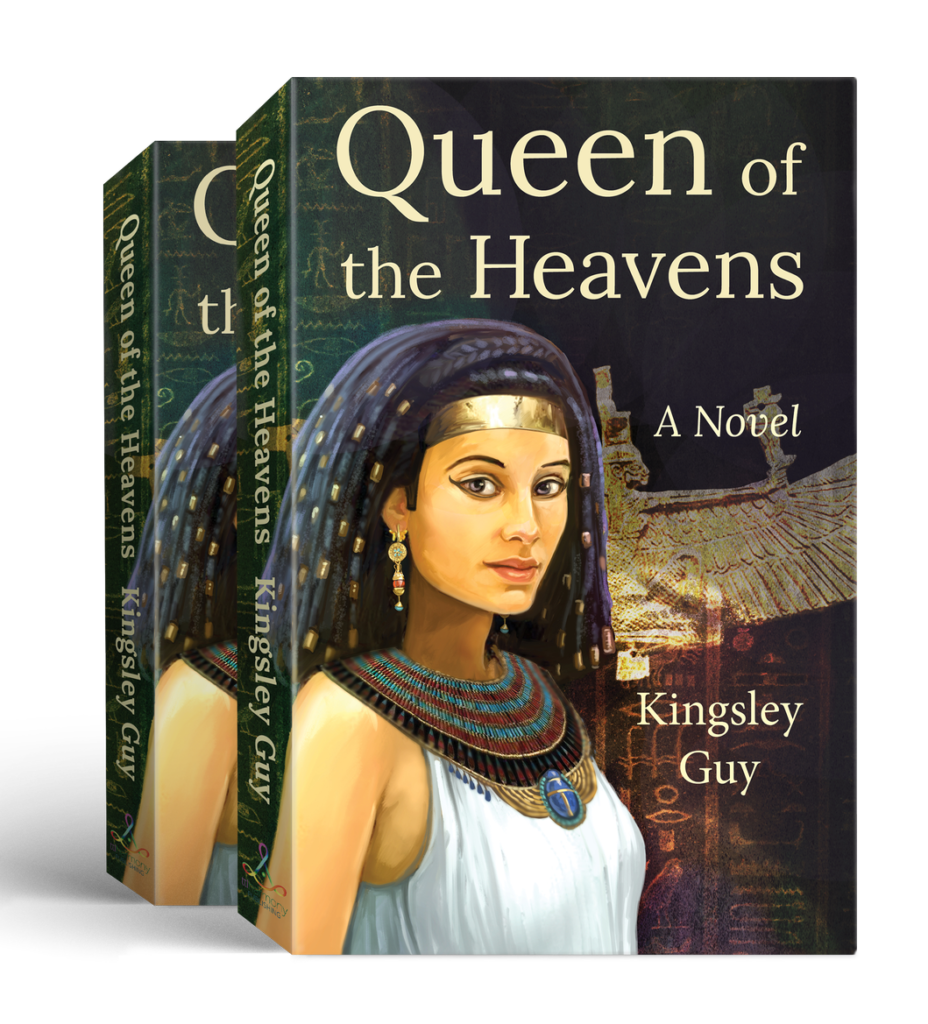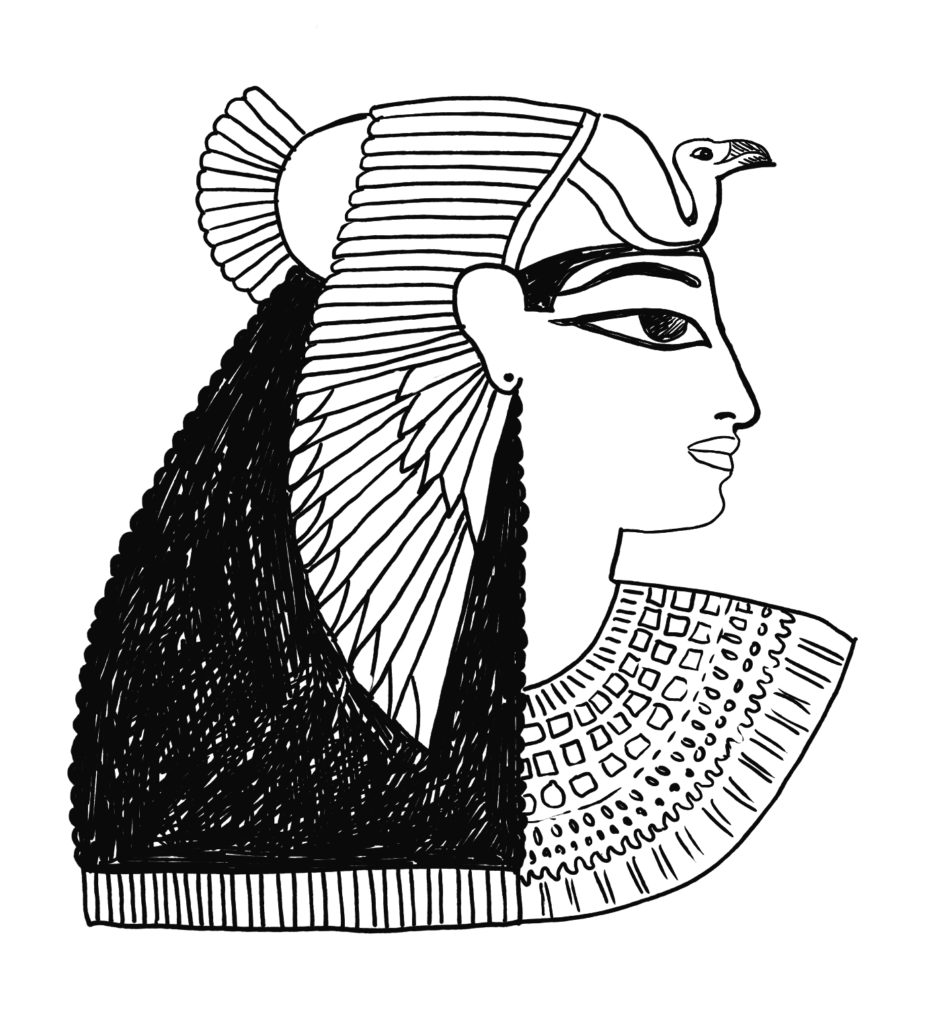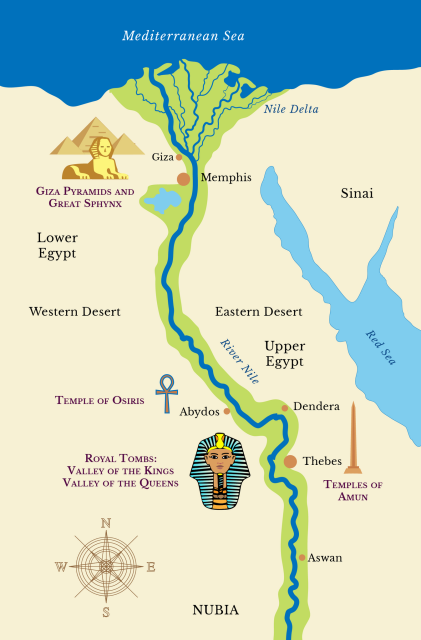
Storytelling: Gateway to Worlds Unseen™
Queen of the Heavens
What is it like to awaken to the divine, and know that our lives are informed and shaped by spiritual guidance from other realms?
Queen of the Heavens helps us open the gateway to those unseen worlds. Respected journalist Kingsley Guy takes us back to ancient Egypt, where gods and goddesses were not merely images carved in stone. They were as real as the sunset and the wind blowing through papyrus reeds. Known as the neters, they passed back and forth between the dimensions, working magic in people’s lives.
Come meet Tuya. Through her gifts as a healer, this extraordinary woman gained the attention of the royal court and rose from commoner to queen. Tuya inspired and transformed the lives of those she touched during the Golden Age of the Pharaohs. Allow her to do the same for you.
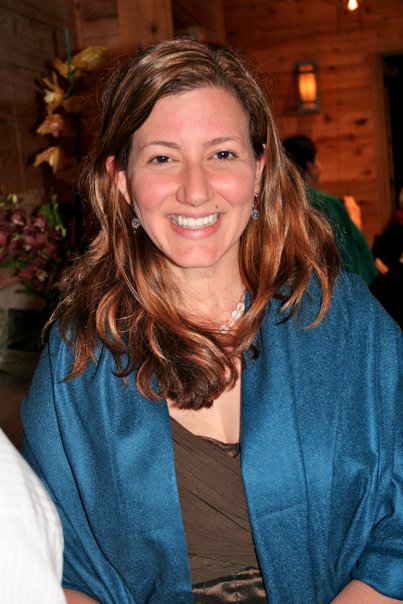
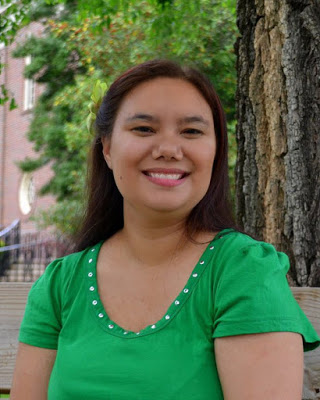

How Queen of the Heavens was Born
When I started writing Queen of the Heavens, I never thought the word “Queen” would appear in the title. I intended the novel to deal with the life of the Pharaoh Ramesses II, not his mother, Tuya. She was to be but a minor character in a story that explored the military adventures, love affairs, and spiritual dimensions of the man who became known to history as Ramesses the Great.
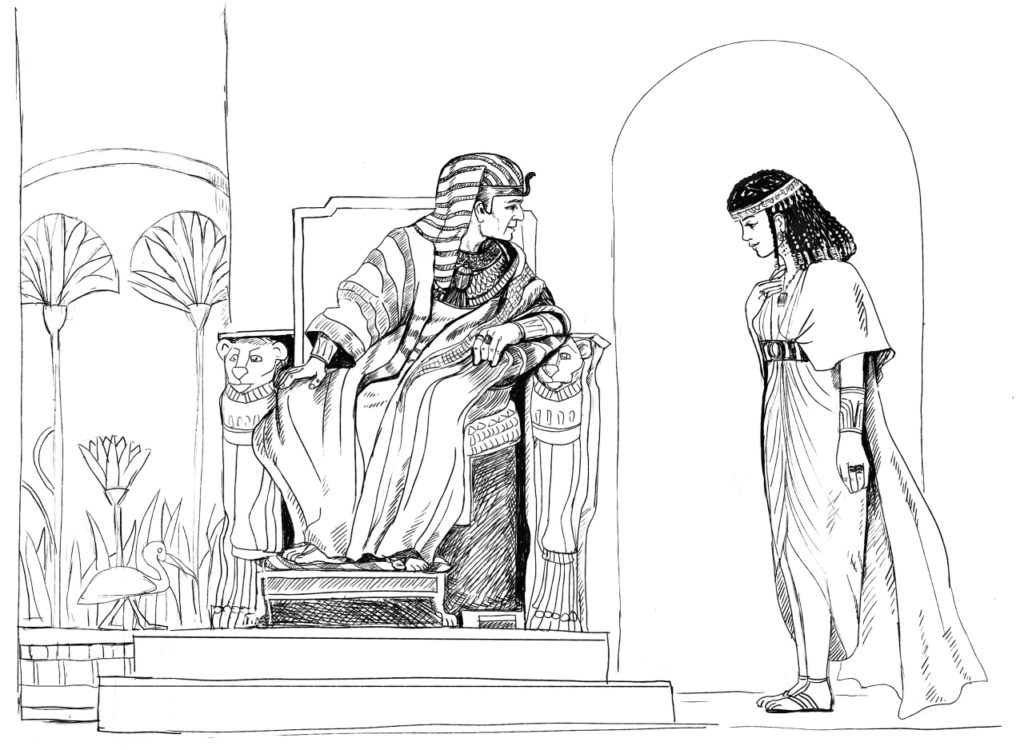
Early in the writing process, however, Tuya began taking on a life of her own, growing in importance as a character. I tried to shift the story back to her son, but the determined Tuya wouldn’t allow it. Ideas kept flowing, so I succumbed to Tuya’s enchantment and crafted a novel that follows her adventures from a young girl to Dowager Queen.
I didn’t expect to be dealing with Egypt in my fiction writing, since my cultural interests centered on India. During a youthful odyssey in which I circumnavigated the globe, I passed through the Subcontinent. Famine raged in and around Calcutta at the time, yet amidst the starvation, I discovered a spiritual dynamic in India unlike that of any country I had visited.
The sense of spirit seemed particularly strong in the ancient and holy city of Varanasi, where funeral pyres burn throughout the day and night, reducing flesh and bone to ashes to be cast upon the River Ganges. While standing amidst the throngs of people outside the city’s Golden Temple to the god Shiva, I felt a sense of timelessness, and I pledged someday to return to that very spot.
It took twenty years for me to fulfill my vow, and when I did, the spirit of Shiva and of India grabbed me again, and would not let go. I embraced yogic thought through reading and practice. Direct experience, not belief or study, convinced me of the reality of a different reality, and as a writer, I sought a vehicle with which to convey my understanding through words.
To my surprise, that vehicle showed up on the banks not of the Ganges, but the Nile. My newspaper, South Florida’s Sun-Sentinel, sent me to the Middle East to explore the Israeli-Palestinian conflict. I had some vacation time coming, so after completing my assignment I headed to nearby Egypt.
It didn’t take long for me to recognize a link between the spiritual nature of ancient Egypt and that of present-day Hindu India. The iconography and mythology of the two bear unmistakable resemblances, which I shall explore in detail in a future blog posting. The rise of Christianity and later Islam superseded the ancient religion of Egypt, but not that of India.
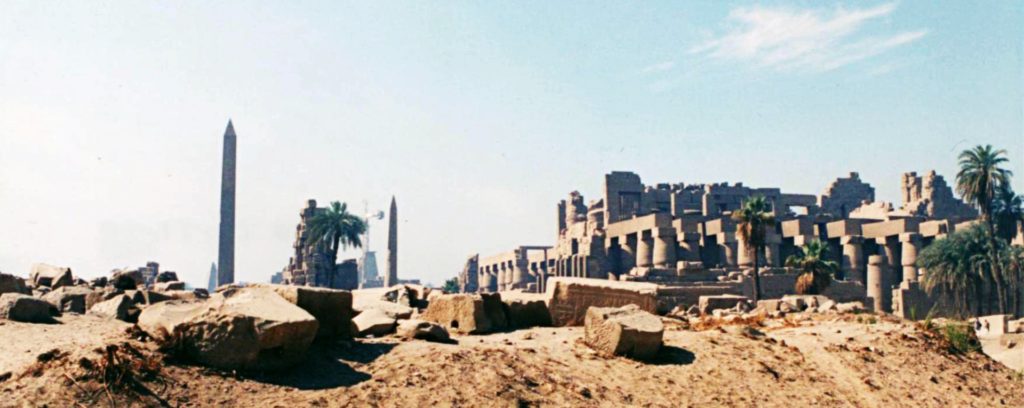
While standing amidst the ruins of the Temple of Karnak, referred to in Queen of the Heavens as the “Great Temple of Amun,” I experienced the same sense of timelessness as I had outside Varanasi’s Golden Temple. The world has advanced enormously in science and technology, I recognized, but as for an understanding of people’s relationship to the Cosmos, it has advanced not at all. Quite the contrary, it has spiraled downward, with modernity robbing much of humanity of its sense of awe and wonder.
Upon my return home, I delved deeply into ancient Egyptian history and mythology. I also returned to Egypt for on-site research, which confirmed some of my more esoteric assumptions. My years of studying and writing have caused me to conclude that if Egyptology had been pioneered by people with a Hindu, or even Buddhist or Taoist perspective, a far more expansive understanding of ancient Egypt would have evolved.
My original idea has now emerged from hibernation, and I’ve begun a fictional interpretation of the life of Ramesses, which begins at the point where Queen of the Heavens leaves off. I suspect as this novel develops, Ramesses’ life will take a few unexpected twists and turns, as did Queen Tuya’s.
Such is the nature of fiction writing, in which ideas sometimes originate in a realm beyond the imagination.

